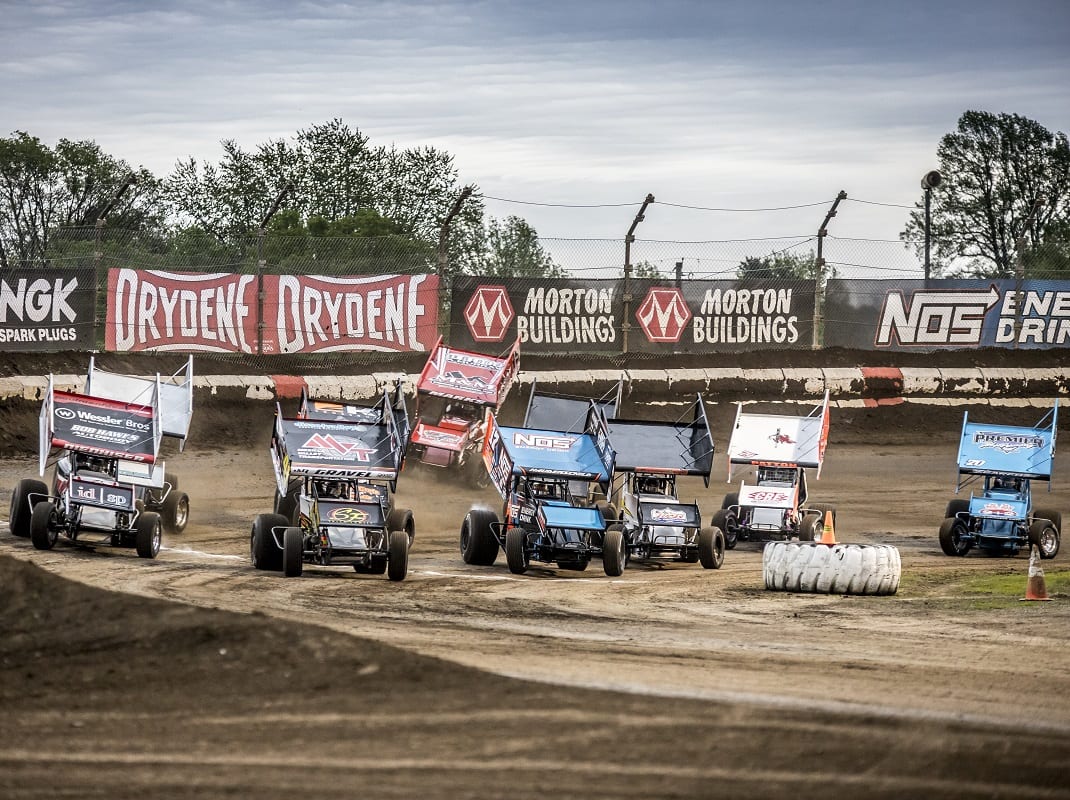Roger Crockett is a driver who has crunched the numbers in the 360 winged sprint car ranks. Crockett dominated the Northwest sprint car scene for many years before relocating to Oklahoma last year.
The idea was to be based in the middle of the country to help serve his business better, but it also provides a new opportunity to race.
Crockett joined the Lucas Oil ASCS Sprint Car Series last year as a full-time driver for the first time, but he was forced to drop off the series in June because of finances.
With a new sponsor in Route 66 Chevrolet, Crockett is attempting to run the full ASCS schedule again this year.
“I have a budget based on no winnings,” he said. “To run the entire ASCS National Tour, counting what it costs to run a motor, you’re (at) about $115,000 or so. That’s based on paying crew and how an average car owner spends. It’s been a few years so the numbers could be different. At the time, we didn’t have a toterhome. That was paying a driver and paying a crew member. For an average car owner to run the series, they’re doing all those things. That’s conservatively two tires per night, too.
“I think the motel rooms cost was probably $15,000,” Crockett added. “A driver was 25 percent of whatever came in in terms of race winnings. That’s the difference for me as an owner, driver and crew chief. If I had to pay a crew chief or a driver, I couldn’t do it. I don’t pay myself. I put everything the car makes back into the racing account. I think you could cut your budget to $75,000 or $80,000 in our situation. That’s not to mention all the stuff of trying to run our business and doing that efficiently.”
Crockett noted that he figures the engine bill is $8,000 for an average rebuild, which occurs every 24 to 26 nights. A new chassis is roughly $20,000, he added.

“Without that tow money, it wouldn’t be practical for me to do personally,” he said. “Without tow money, we wouldn’t be able to do it. We hope that covers diesel, which is what that’s meant for. For my program having a little (sponsorship) help now helps, but that tow money, it flat wouldn’t be doable if we didn’t have that. You’re going to spend close to $20,000 a year (on diesel) to run the ASCS National Tour. Everybody’s toterhomes get between six to seven miles per gallon.”
ASCS National Tour Series Director Matt Ward made a big change regarding tow money in 2012.
“When I took over in 2011, the purse was more like $4,000 to win (the first night of an event) and $5,000 to win (the finale), but the tow money was different,” he said. “If it was a two-day show at the same track, the first night was $350 and the second night was $500. We were having a hard time booking races because the purse was so high. We were at Grays Harbor Raceway (in Elma, Wash.). Me and my grandpa (Emmett Hahn) called the drivers and owners on the national tour to the conference room. We told them here’s the deal: We can’t book shows at this price. We renegotiated the purse with the drivers. We cut that back, but we upped the tow money.”
Since 2012, all full-time ASCS National Tour drivers in the top 10 in the standings receive $500 tow money per race and the defending series champion has a $250 bonus per race. Drivers ranked 11th and 12th in the standings receive $300 tow money per race. All full-time teams also have access to two pit passes at $15 per race.
“The last three years with the guarantee of that tow money up and down the road we’ve had a spike in our travelers,” Ward said. “I think it’s because of the tow money. That’s easy money for just showing up.”
Easy money is important with the cost of the sport so high. That’s likely a key reason why whenever a traveling series loses a couple of full-time competitors, it doesn’t take long for a regional racer to jump on board, knowing there is tow money for each race and money from a points fund at the end of the season.
Now if someone could just figure out a way to get tow money for going to the gym.
